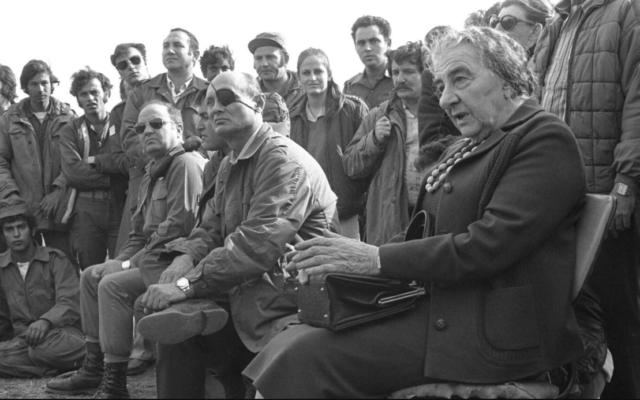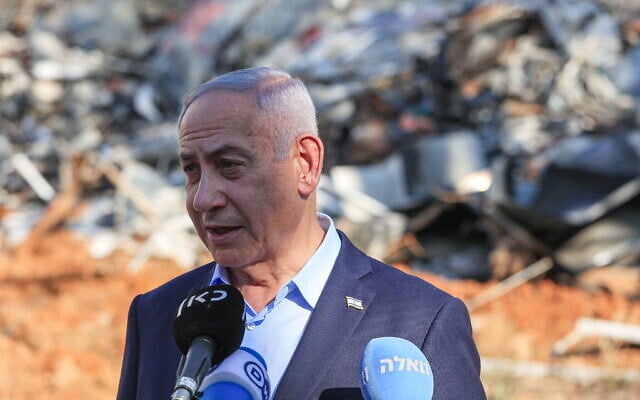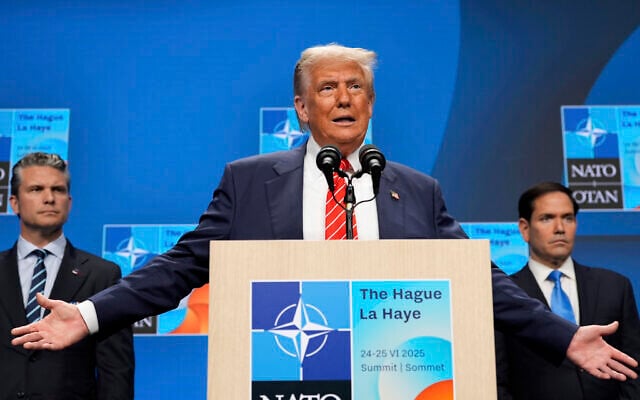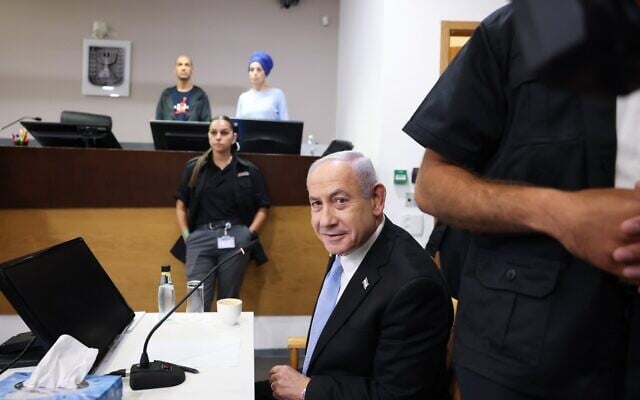


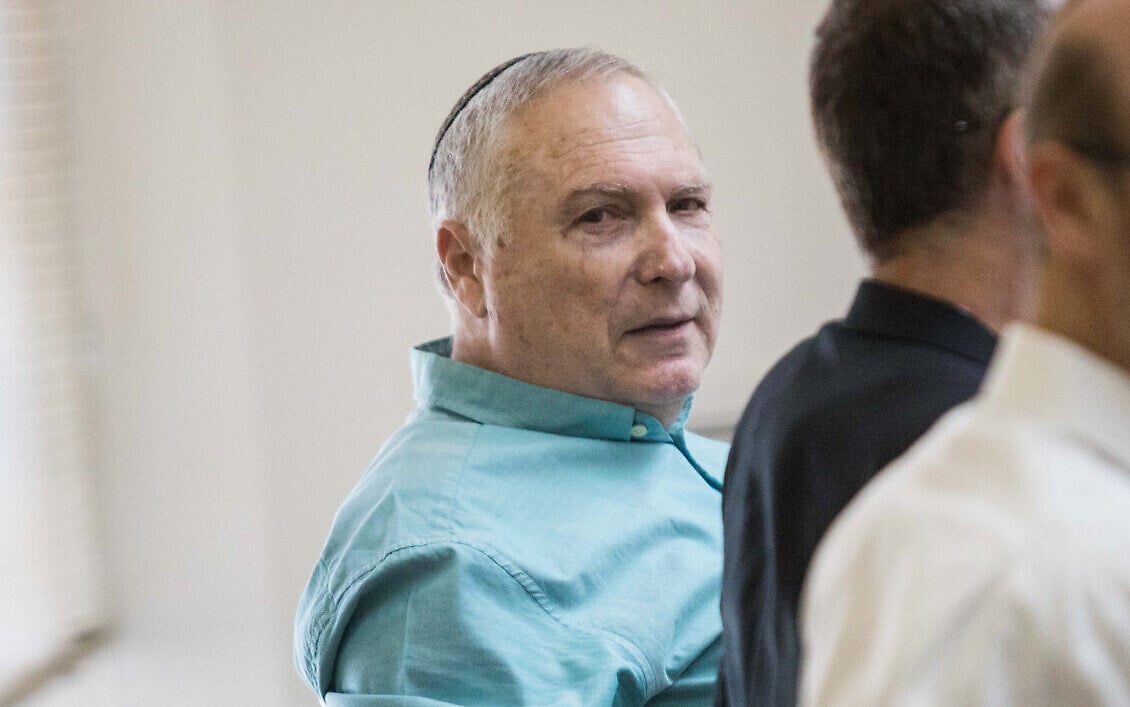
“The failure and disaster of October 7 won’t come up at all in the next elections,” declares Natan Eshel, a close associate and friend of Prime Minister Benjamin Netanyahu. “The disaster will have no effect whatsoever on the election results. None,” he states.
Speaking to the Times of Israel, Eshel bases that claim on precedent — the failures of 1973’s Yom Kippur War, when Israel was caught unprepared for a surprise attack by Egypt and Syria, and their electoral consequences, or lack thereof, for Israel’s leadership. In December 1973, two months after that traumatic war, prime minister Golda Meir and defense minister Moshe Dayan won reelection despite the blunders.
“No one held anything against Golda,” Eshel says.
There are, notably, some differences.
The Yom Kippur war lasted 19 days. And despite their success at the polls, both Meir and Dayan decided to resign four months later, following the release of an interim report by a state commission of inquiry set up to investigate the war’s failings. The Israel-Hamas war sparked by October 7 has lasted 20 months and counting. Netanyahu has so far thwarted the establishment of a state probe into October 7.
Though the Agranat Commission did not assign Meir and Dayan personal responsibility for the errors made ahead of the Yom Kippur conflict, it determined that the two bore ministerial responsibility. It stated that the decision regarding their fate was up to the public and the political system.
Eshel relies on that precedent.
“Everyone knows that the army and the Shin Bet screwed up. Netanyahu may bear ministerial responsibility for what happened, but he’s not to blame,” argues the adviser.
For Eshel, the October 7 disaster pales in comparison to recent achievements in Israel’s war against Iran. “The removal of the Iranian threat is a hundred times more significant than the October disaster,” he says.
Netanyahu and his allies are carefully crafting this narrative. The goal is to arrive at elections — seen as likely to take place in 6-12 months — with a platform that fully clears the premier of any responsibility.
In fact, the prime minister is methodically eliminating from the system any negative associations between himself and the disaster. Over the past two years, he has overseen the removal of all security chiefs whom he viewed as responsible for the debacle: the defense minister, the chief of staff, the head of military intelligence and the Shin Bet director.
In the 14 years preceding October 7, it was Netanyahu who — for all but 18 months — set Israel’s national security policy. And yet, he sees those officials as solely responsible for the calamity. According to Eshel, Netanyahu’s campaign message will be: “Iran was me, and I’m still here. October 7 was them — and they’re all gone.”
On Thursday, it was apparently time to also eliminate Netanyahu’s criminal trial from the picture. In an unprecedented tweet likely coordinated with the prime minister, US President Donald Trump called for legal proceedings to be canceled, claiming they were a grave injustice. Trump asserted that the trial was an act of ingratitude by Israel toward its great leader.
Trump’s tweet quickly launched an open campaign to end the trial, with ministers and coalition MKs echoing the message one after the other.
Leading them was Foreign Minister Gideon Sa’ar, who, as justice minister in the previous Lapid-Bennett government, had once blocked a favorable plea deal for Netanyahu. Sa’ar was the one who appointed Gali Baharav-Miara in February 2022 as attorney general for a six-year term, at least partly because he knew she would continue overseeing Netanyahu’s trial even if elections took place, and that she firmly opposed plea deals that would end the trial without Netanyahu receiving a career-ending designation of moral turpitude.
Now, Likud ministers and MKs such as Nir Barkat, Shlomo Karhi, Miki Zohar, Idit Silman, Ofir Katz, Ariel Kallner, Tally Gotliv and others voiced their enthusiastic support for canceling their boss’s trial, trampling basic democratic principles such as equality before the law and judicial supremacy.
Silman and Gotliv went even further, with the former demanding a commission of inquiry into the “frame-up of Netanyahu’s cases” and the latter urging Trump to enact personal sanctions against the chief justice and the attorney general.
Later in the day, Netanyahu himself joined the campaign, thanked Trump, and reposted the president’s statement supporting the cancellation of the trial. Trump’s statements also gave a boost to the government’s plan to dismiss the attorney general and appoint someone else who would end Netanyahu’s trial.
These aggressive moves were accompanied by widespread leaks Thursday about imminent historic diplomatic developments in the region, clearly meant to elevate Netanyahu’s image and diminish the significance of the criminal proceedings. As politicians gave interviews mocking the charges and the very notion of the trial, Netanyahu’s attorney filed a request for the panel of judges to excuse Netanyahu from testifying in the next two weeks as planned, citing momentous events (on Friday, judges dismissed that request).
For now, Netanyahu can indeed chalk up a cumulative win. In a poll broadcast Thursday night by the Kan state broadcaster (Hebrew link), Netanyahu’s Likud party received 31 seats — almost the same as in the last election in November 2022. Though the current coalition was still at 56 seats in the 120-member Knesset, 11 short of its current 67, the results signaled a clear upward trend.
This is the first political dividend from the major achievements in Iran.
Netanyahu is sure to seek more wins as he endeavors to reach elections without the stain of October 7, without a trial, and with dazzling diplomatic victories coordinated with Trump — the man who, in practice, seems to be running the show.
This article was originally published on ToI’s Hebrew site, Zman Yisrael.

